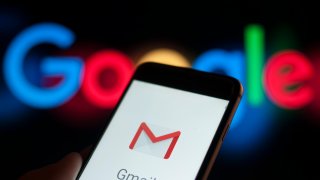
- In May, Google announced that accounts that haven't been used in the last two years will be deleted under the company's new inactive account policy.
- All of the inactive account's data will be deleted — including any old emails or photos stored there.
- The change is set to go into effect in December, which means users might have just a few hours to back up important data they might have forgotten about.
Google will begin deleting inactive Gmail accounts as soon as Friday under a new security policy. If you have a Google account that you haven't used in a while, here's what to know to make sure your information isn't affected.
In May, the tech giant announced that it will delete Google accounts that haven't been used in the last two years, along with emails, photos and other data stored in the account. The change is set to go into effect in December, which means you might have just a few hours to back up any important data that you forgot about.
Google said it will be deleting accounts in a phased approach, beginning with accounts that were created and never used. The company also said it will send multiple notifications to the account as well as its recovery email prior to deletion.
Get Boston local news, weather forecasts, lifestyle and entertainment stories to your inbox. Sign up for NBC Boston’s newsletters.
To make an old account active, all you have to do is sign into it. Actions such as reading an email or using Google Drive will keep the account open for at least another two years, according to Google.
Google said the new policy is an effort to protect user security, because inactive accounts are more likely to be compromised. Forgotten accounts are more likely to use old passwords and to not be protected with two-step verification, making them more vulnerable to hackers, the company said.




